The Breastfeeding Course for Health Care Providers provides comprehensive information in lactation anatomy, physiology and counseling. This curriculum incorporates the latest evidence-based information in human milk feeding and offers the tools needed to help students support, counsel and empower families to reach their breast/chestfeeding goals. The course content covers all the topics of the International Board-Certified Lactation Consultant (IBCLC) detailed content outline and meets the 95 hours of lactation specific education which includes the five hours of education focused on communication skills and the two hours of education specific to the World Health Organization International Code of Marketing or Breast-milk Substitutes required to be eligible to write the IBCLC Exam.
This online course pairs self study with engagement through live sessions led by experienced IBCLC's and guest speakers. Student presentations and case study sessions provide an opportunity for students to work together to apply what they have learned. Throughout the course students will have options to explore, deepen and consolidate learning about specific areas of lactation and lactation care.
This course is for health care providers or students including nurses, doulas, midwives, physicians, massage therapists, occupational therapists, physiotherapists, dietitians, dentists, speech language pathologists, respiratory therapists.
Course outline and expectations
Zoom sessions:
- Six core 1.5 hour sessions
- Four optional guest speaker sessions
- Each live session is capped at 20 students
Students will have live sessions throughout the semester, with options to join typically on:
Wednesday/Thursday evenings 5:00 - 6:30 pm PST and Friday and Saturday morning 9:30 - 11:00 am PST.
Sessions options are subject to the number of registrants.
Students are strongly encouraged to attend each of the six core sessions. Sessions are recorded and made available for students who are unable to attend along with any of the related activities to ensure the content in the core class is covered.
Attendance at live session No. 3 student tool and technique demo assignment in week 7 is mandatory. Exceptions can be considered for extenuating circumstances.
Weekly course work
Students will work through course content on a weekly basis over 12 weeks. Each folder contains:
- Short video lectures
- Readings from the required textbook and provided articles
- Brief quiz
- Supplemental podcasts, webinars and readings students can select for observational watch, listen and learn experiences to deepen understanding of specific areas of interest.
Discussion forums
- Students will be asked to participate in 6 brief written discussion forums over the duration of the course
- Participation in a guest speaker session can be used in lieu of answering a question in up to a maximum of 2 of the 6 discussion forum
Assignments
- 5-minute presentation designed for families about one tool or technique
- Review of research about a clinical controversy and participation in discussion session
- Reflective journal of watch, listen, read, and learn experiences
Final exam
- Online
Additional information
- The course is the equivalent to a fourth-year university course.
- Good understanding of medical terminology, biology, anatomy and physiology and evidence-based theory are required to be successful in the course.
- All course participants should be fluent in both spoken and written English.
- In addition to serving as a nursing elective at various educational institutions, this course prepares students to write the International Board-Certified Lactation Consultant Exam. If you are looking for a basic breastfeeding course, we try our 20 Hour Breastfeeding Course: Foundational Concepts.
- ***If you are a Winnipeg Regional Health Authority (WRHA) employee please contact your Supervisor, Manager or Educator prior to registering for this course as sponsorship may be available through this health authority
- All students are contacted via email closer to the start of the course and are provided information on how to log into blackboard and get started.
Fall session
Course Fee: $1,057.00
CRN: 11706
Start date: Monday, January 12, 2026 End/Exam date: TBA - April 2026
Deadline to withdraw: Tuesday, January 6, 2026 @ 4:00 pm PST
Notification of withdrawal and/or refund request, by email or contacting CE Registration at 604-527-5472 - 3 business days prior to the beginning of classes, minus $50 processing fee.
NO exceptions and no refunds will be granted after the above stated timelines.
If 30% of the course has gone by with no student participation, the student will be graded with a "UN".
Participants are expected to have a consistent internet connection and audio/visual streaming capability such that they can actively participate in the live sessions.
Required textbook:
Students must purchase the book:
Wambach & Spencer, Breastfeeding and Human Lactation (Includes Navigate 2 Preferred Access) 7th Edition; ISBN: 978-1-284-15156-5. Can be ordered or purchased at the Douglas College David Lam Bookstore https://bookstore.douglascollege.ca/.
Please Note:
We recommend the required textbook be purchased as soon as possible. The textbook can also be purchased at the Douglas College Bookstore email: bookstore@douglascollege.ca.
Optional textbooks
Breastfeeding Answers: A Guide For Helping Families 2E, Nancy Mohrbacher, June 1, 2020 release
Optional resource
Interdisciplinary Lactation Care, Approval Review Committee (LEAARC)
ISBN: 978-1-284-11116-3, 1284111164, eText ISBN: 978-1-284-17411-3, 9781-284-17411-5
- Provide basic knowledge to help support families through their breastfeeding journey
- Provide students with comprehensive evidence-based understanding of the basics of lactation, including childhood development and anatomy and physiology of the lactating breast
- Utilize cultural and gender appropriate family-centered-care principles
- Encourage the development of sound and effective breastfeeding techniques, counseling and assessment skills
- Establish breastfeeding as the cultural norm in hospitals, communities and the workplace
- Discuss health implication of prescribed medications and recreational substances on breastmilk/breastfeeding
- Become change agents in the area of breastfeeding/lactation and disseminate this knowledge among breastfeeding families and other health care providers
- Identify breastfeeding agencies of national and global significance
- Discuss key frameworks such as Family-Centered Maternity & Newborn Care Principles and Primary Health Care & Population Health including informed/shared decision making, social determinants of health, health equity, cultural humility & safety, trauma informed care, and importance of community partnership.
Do I have to be a nurse to take this course? What are the Pre-requisites?
No, you do not need to be a nurse, however it is recommended you are either a student or practicing health care provider as the course is equivalent to a fourth year health science course. If you want to start and have a basic understanding while you get your science courses as required by IBCLC (see pathways link), you can take our 20 Hour Breastfeeding Course: Foundational Concepts.
Can I sit the IBCLC exam after I finish this course?
No, this course alone does not qualify you to take the IBCLC exam however, successful completion of the Douglas College Breast/Chestfeeding Course for Health Care Providers does provide you the 95 hours of lactation specific and communication education required to be eligible to write the IBCLC exam There are a variety of pathways to IBCLC and other requirements for eligibility to write the exam. Please visit the IBCLC Commission for current information about the pathways and process for applying write the IBCLC examination.
I would like to become a Lactation Consultant (IBCLC). What are the steps to follow?
Please visit the IBCLC commission website to determine which pathway is right for you https://ibclc-commission.org/how-to-become-an-ibclc/ and review the Candidate Information Guide
Why do I have to take this course?
BCHP is just one of the requirements to become a lactation consultant. You will need 95 lactation education hours (L-CERPS) in order to meet the lactation education (in addition to other courses as per their website). This course has been approved by LEAARC. This course includes the 5 hours of communication that are required to apply for the board exam.
Do your clinical hours/observational experiences hours qualify for IBCLC and I can sit the board exam?
No. The observational/alternative experiences hours required for the reflective journal are not hands on clinical practice so do not qualify as clinical practice hours for the purpose of application to write the IBCLC exam.
Will the college provide the clinical hours required to sit the board exam?
No, Douglas College does not provide clinical practice hours.
Should I take this course first before applying to a job?
It is up to you. You can take our breastfeeding course for healthcare providers and have the course in order to provide adequate support to breastfeeding moms at work.
No/minimal experience working with breastfeeding families but I would like to take this course. Can I take it?
Yes! If you are not familiar with breastfeeding, we have our 20 Hour Breastfeeding Course: Foundational Concepts, which provides the foundation for anybody who is starting out helping parents breastfeed.
New Requirement Effective 2025: Two (2) Hours of WHO Code Education
As shared in previous IBLCE Briefings, beginning in 2025, all candidates certifying, recertifying, or reinstating will be required to take two (2) hours of education specific to the World Health Organization International Code of Marketing of Breast-milk Substitutes:
- For Initial certification: Candidates are required to earn 90 hours of lactation specific education, as well as five (5) hours of education focused on communication skills. Two (2) of the lactation specific hours should be focused on the WHO Code to meet this new requirement.
- For Recertification by CERPs: IBCLCs choosing to recertify by CERPs are required to submit 75 CERPs, five (5) of which are required to be E-CERPs. Two (2) of these five (5) E-CERPs hours should be focused on the WHO Code to meet this requirement.
For Recertification by examination: Two (2) hours of education focused on the WHO Code must be submitted, along with all other existing recertification by examination requirements.
| Angela Blouin, is an International Board-Certified Lactation Consultant (IBCLC) with 25 years of experience as a public health nurse and community health nurse in both British Columbia and Manitoba. After completing her Bachelor of Nursing Degree at the University of Manitoba in 1984 she started her nursing career in adult intensive care and was drawn to lactation care in the wake of her own struggles with breastfeeding. Committed to evidence informed, client centred, trauma informed care, she completed the Douglas College Breastfeeding Counsellor Course in 1998 and became an IBCLC in 2002. While most of her time as an IBCLC has been spent providing individual lactation consultation in breastfeeding clinics, home visiting programs and support groups, she has also partnered with academic, provincial and first nations agencies to serve on research steering committees, provide lactation education for health care providers and develop teaching tools for maternal child health programs. Her desire to ensure families are surrounded with the skilled care and support needed to have the best possible human milk feeding journey possible lead her to serve on a variety of committees including the Winnipeg Regional Health Baby Friendly Initiative Community Committee, Manitoba Breastfeeding Network, Canadian Lactation Consultant Association, Adolescent Parent Interagency Network. She is currently a member of the Manitoba Interdisciplinary Lactation Centre and the British Columbia Lactation Consultants Association. She resides in Kelowna British Columbia and in her off time can be found out in nature biking, hiking, and paddling with family and friends. | 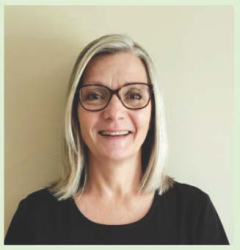
|
| Vanessa McFarlane is an International Board-Certified Lactation Consultant (IBCLC) and a Registered Nurse (RN). After completing a Bachelors of Kinesiology (2009), Vanessa continued her education to complete her Bachelor's of Nursing from BCIT in 2012. Vanessa has been working in various Neonatal Intensive Care Units across the province for the last 10 years. She has worked in various roles within the NICU environment and as a private practice IBCLC within her community. After completing her Master of Nursing Education from Athabasca University, Vanessa worked most recently as the Nurse Educator in a busy acute care NICU. Vanessa has a passion for supporting parents through their lactation journey and is excited to share her knowledge with others to facilitate their learning. On her downtime, Vanessa enjoys travelling and spending time in nature with her two daughters and husband. | 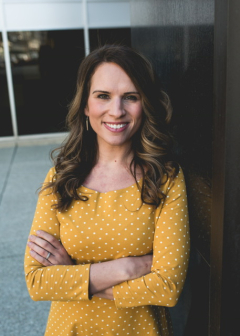
|
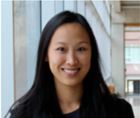
| Dr. Christine Leong, PharmD, Assistant Professor, Clinical Pharmacist. College of Pharmacy, RFHS, University of Manitoba. Dr. Leong’s research focuses on drug utilization and outcomes from a population perspective. Her program aims to optimize treatment and to improve the quality of care for patients taking medications. Projects include examining the use of adherence of medication before, during, and after pregnancy; and describing the experiences of people and healthcare provides regarding mediation use during breastfeeding. Pharmacoepidemiology, qualitative research and survey studies are methods used in this program. |
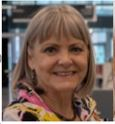
| Karen Lasby, RN, MN CNeoN(C), with more than 35 year of experience as a neonatal nurse, educator, research and author and is a respected expert in in caring for premature babies and their families. Karen leads a specialized nursing team in post-discharge follow-up of extremely premature babies beyond the neonatal intensive care unit. Her experience, compassion and dedication to preemies and parents make her a leading expert in the neonatal journey. |

| Marnie, Indigenous Birth Keeper and Lactation Counsellor. I am Okanagan, French Canadian and European. I have supported North American First People with all things postnatal for the past ten years. However, a few years ago I was gifted the opportunity to learn and work with Indigenous families prenatally and birthing. |
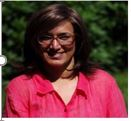
| Shahrzad Tayebi, IBCLC, CST, practiced midwifery in Iran for 18 years before coming to Canada. She is a prenatal educator, private practice LC, educator, Youtube producer, speaker and documentary director producer. We’re Mammals documentary demonstrates how we can support infants, inform feeding behaviors to improve lactation experiences. |

| Nadia Hawkins, BScN, RN, IBCLC The More Milk Sooner team originates from Saskatchewan. In 2018 Dr. A. Prollius, Dr. T. Yen and Naida Hawkins teamed up to help more families to have access to prenatal/first hour hand expression after noting their patients were finding this helped them to have an easier time starting and continuing to breastfeed. Seeing the success of this approach in their own practices they recognized the responsibility they had to bring this life changing practice to families and health care providers as possible. They have presented both nationally and internationally on this subject but feel the most impactful thing they did was start a website and YouTube channel for families and healthcare providers to learn more. |
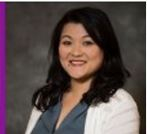
|